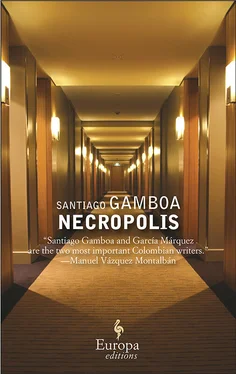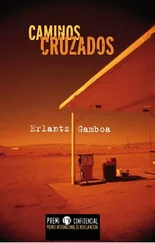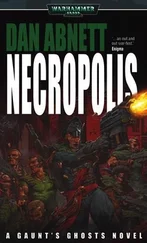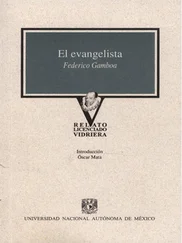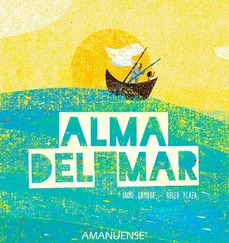When Egiswanda pointed it out on the map I was impressed. That rock in the middle of nowhere perfectly represented what his life had been, or his situation in life: a small boat in the middle of a storm, lashed by surging waves and storms. He, like me, was a small boat. The fact he had found in such a place a refuge for his soul was a great lesson, and I did not doubt for a second that I should go.
We flew from Rome to Johannesburg, stopping in Jedda and Nairobi. From there we went to Cape Town, where we had to wait three days. We rented two rooms in the Winchester Mansions, facing the Atlantic, and killed time walking around the city, as if we were three tourists rather than fugitives.
Finally the Friday came, the day when the Tupolev flies out provisions, mail, and equipment. The only quick way to get to Tristan da Cunha.
Our arrival was a highly emotional moment.
After flying over those limpid skies so common in the south of the world, with the sea shining bright red and ocher, we saw that awesome dot in the middle of nowhere, the smooth, volcanic surface, like a lunar crater or a dry, chapped old nipple. Then the plane nosedived toward that tiny planet until it was almost swallowed up by the waters or the wind, so fragile did it seem from the air.
The little airfield had the same name as the colony: Edinburgh of the Seven Seas, and lay in the foothills of a huge volcano. It could hardly be described as a town, not even a small town or village. It was a collection of large houses beside the headlands. A settlement.
When we got off the Tupolev, it was cold and there was a strong wind. A group of people was waiting at the military base, and on seeing us getting out, a man with a white beard, in his fifties or sixties, approached and said, are you visitors? I handed him the envelope with José Maturana’s letter and the old man read it, screwing up his eyes. His neck was red and rough, like a rooster’s, and his long hair was gathered in a ponytail. Without looking at us he called to another of the old men, a man nearly seven feet tall, and showed him the letter. The giant took out his glasses and read. Then they nodded and came toward me. Welcome, the three of you are welcome, and they introduced themselves:
Reverend Ebenezer Talisker, said the first. Reverend Silas Folkes, said the second. As they said their names, they put their hands over their hearts and gave theatrical bows.
They hugged me and greeted the two women effusively. Reverend Talisker called something to the others which I did not understand, and then said to us, come, it’s cold and the wind will rise in a few minutes. I’ll take you to your house so you can settle in as soon as possible. Two young men picked up our bags and put them in an old Silverado rotted by the salt and sea breeze. Talisker motioned me to get in, with Jessica and Egiswanda, and drove for about ten minutes along a coast road in the foothills of the volcano, until we saw the first houses. A few people came to the windows to see us and smiled. Most were more incredulous than anything else.
José’s house was on the other side, near the post office and the cliff. It was a two-story house of wood and slate, with wide balconies, reminiscent of British houses in the Caribbean. On the front there was a plank hanging from two chains on which the words Black Sparrow could be read. Talisker explained that for the construction of the house they had used the rigging from a ship of that name, which had run aground here.
The house looked out on the ocean on three of its sides. Does it get very windy? I asked. The two men laughed. Instead of replying, they took out their pipes and filled them with tobacco.
In one of the side naves was the chapel. A modest cross and an inscription that said: Chapel of Christ the Redeemer. At the back were two rooms which communicated with the living room and the dining room on the first floor. The chapel had about twenty wooden benches, an altar, and some images of the Virgin Mary, St Antony and St Paul. And at the front, behind the vestibule, a huge and very modern image of Christ with a heart of alabaster fixed to the wall, which appeared to throb in the sunlight.
The young men helped us to unload the things, of which there were not many, just a few cases and some hand luggage. Jessica said she would live in the rooms that adjoined the chapel. Egiswanda took over two of the rooms on the first floor and I settled into those on the second floor. I unpacked my case in the bedroom and occupied the adjacent study. Everything was furnished simply and in good taste. Tables and chairs of wood and leather. Fitted closets. There was a good library, with literary classics and philosophical works. I assumed that Maturana had slept in what was going to be my bedroom and I approached the large windows, which were like the mouths of caves facing out to the heart of the ocean. I connected my laptop on the work table and arranged the few books I had brought with me: the Complete Plays of Tennessee Williams, Old Masters and Frost by Thomas Bernhard, Marcel: First Dialogue on the Harmonious City by Charles Péguy, Diary of a Country Priest by Bernanos, and the Diaries of Léon Bloy. Then I discovered that Maturana had them in his library, with annotations. I also placed my old chessboard on a side table, and a Book of Openings. I was complete.
We rested for a couple of days, each engaged in his or her own activities and walks. At night, we would get together for dinner in the huge oak dining room — did it come from another shipwreck, like the rest of the house? — and Jessica or Egiswanda would explain the dish they had cooked. The provisions we obtained at the administrative office, although soon after settling in a very silent man brought two boxes filled with food. A gift from the reverend, he said before he left.
The second night I went to the only pub in the village and saw three fishermen sitting at the bar, having an animated conversation. On the wall there was a huge stuffed swordfish and a white and red life preserver. I asked for a whiskey, and then another. The men smiled at me and very soon I received two free rounds. They invited me to go out to sea with them whenever I wanted; only it would mean going to the harbor at three in the morning. They went out early to catch banks of fish farther south, past the other two islands in the archipelago, Nightingale Island and Inaccessible Island.
308 people lived in Edinburgh of the Seven Seas.
One night some time later, Egiswanda also came to the pub. The men were surprised. She drank three whiskeys with them and reminded them that continuing in a straight line westwards you would reach Brazil, her home country. They already knew that, but were delighted to hear it. We played darts, drank a few more whiskeys, and got back home after midnight. Jessica was already asleep.
After four weeks, I felt strong enough to start writing about José’s life, and I asked myself, should I tell the two women who were now sharing my life? They were leading characters in the story, but I preferred not to say anything. I started by making a fair copy of the notes I had made during the conference, which were a whole notebook. One day I asked Egiswanda to let me reread José’s letter and I copied out the section that referred to the island, which said this:
The request has to do with the other envelope. Look for God in the deep, say the gospels and that is what you are going to do; you are a rock on a cliff, strong, tough, I had never told you these things but today I am saying them and writing them, so that you know that they were inside me, so that you remember them, there I leave you these words. (…) In the blue envelope there is a map on which is marked an island and the way to get there, like in stories about treasures, except that in this case the treasure is the whole island, the one place on Earth where peace exists, a rock remote from the world where I would like to take you and I really had planned to take you there if this emergency had not come up, so the request is that you go and settle there; you can go whenever you like and move into our house, ask for the chaplain, his name is Talisker, he will help you (…) You have to go to be pure and clean and then, when that day arrives, you will make the leap into the infinite where the Big Enchilada and I will be waiting for you; but in the meantime go there and stay, that island is how I was when I was born, something small and solitary, lost in the world; on it you will be protected by millions of tons of water and you will be happy, because it is an emanation of the soul of God; my last gift is more solitude, Wanda, but what can I do if I was born alone; when I look at the world it will be to imagine that you are there, on that solitary dot, and to tell me that that pure uncontaminated place is Wanda’s island.
Читать дальше
